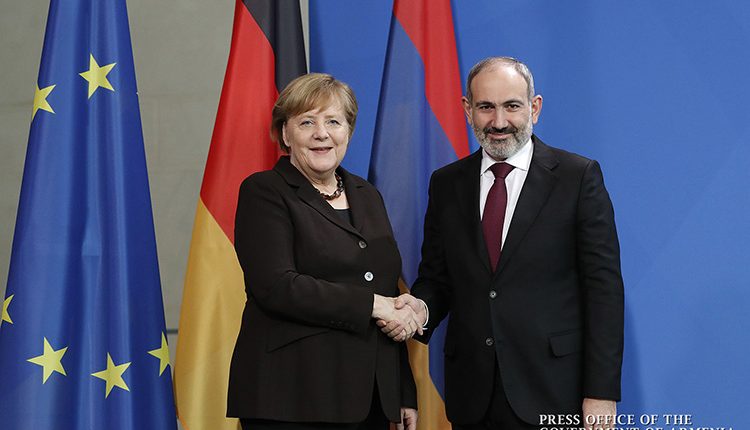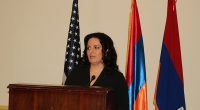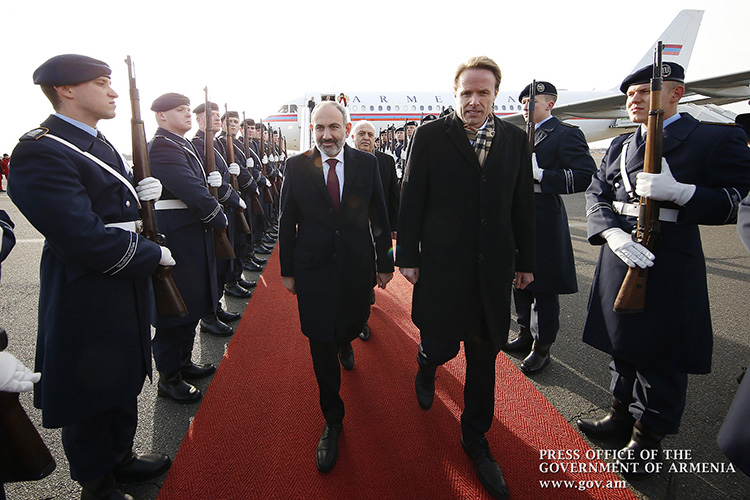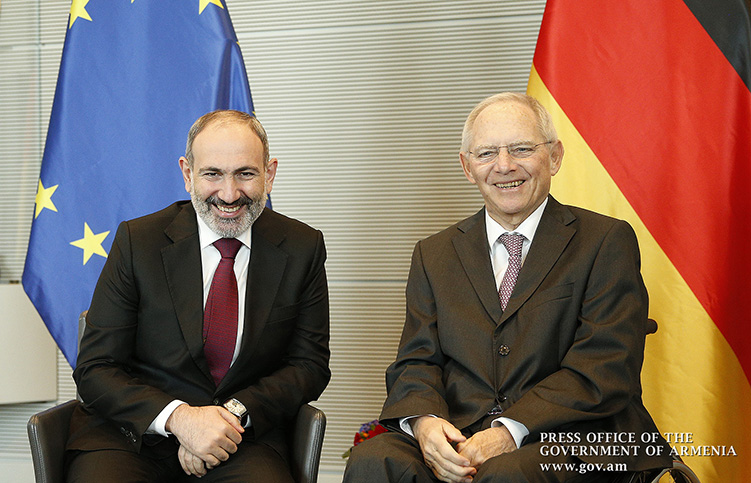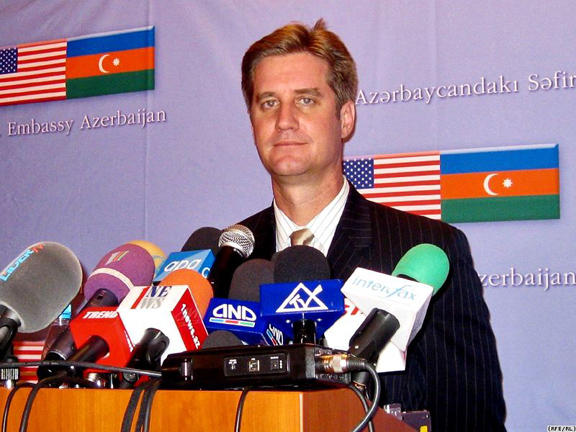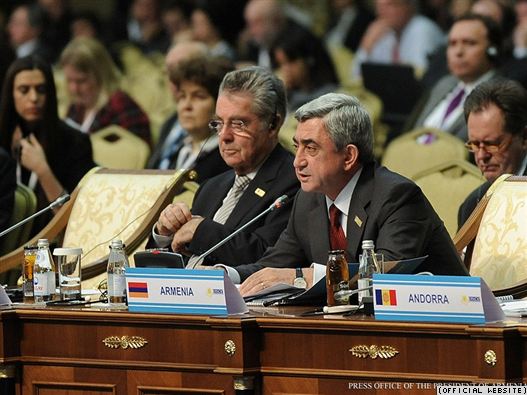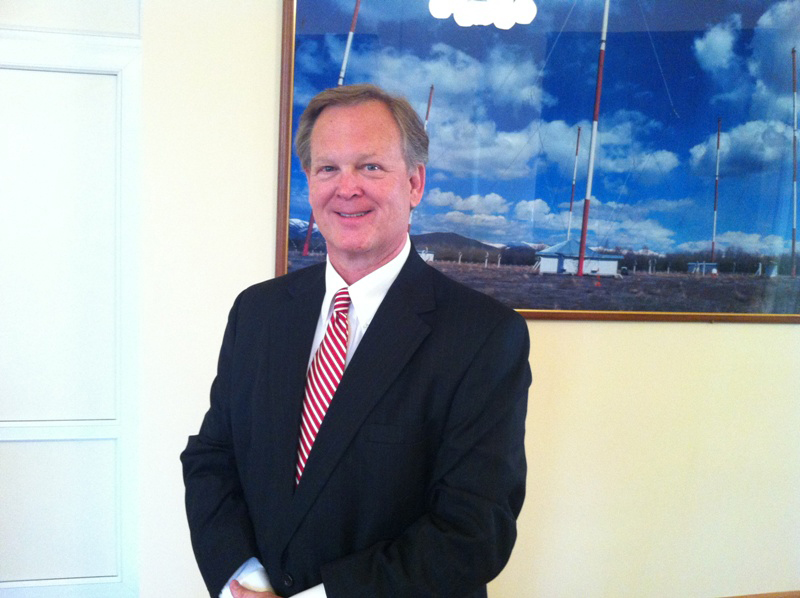BERLIN — German Chancellor Angela Merkel hailed Germany’s increased cooperation with Armenia and significant changes in the South Caucasus state when she met with Prime Minister Nikol Pashinyan in Berlin on Thursday.
It was their third meeting in 18 months. Merkel noted with satisfaction that German-Armenian relations have “intensified” since her previous talks with Pashinyan held in August 2018 in Yerevan and in February 2019 in Berlin.
“We will continue to talk today about deepening bilateral relations,” she said in a statement to the press made at the start of their latest meeting.
Merkel stressed that “a lot has changed in Armenia” since Pashinyan swept to power in the “Velvet Revolution” of April-May 2019.
“There is a parliamentary democracy, elections have been held, and there is also a major renewal process … for example in the legal system,” she said. “We naturally hope that Armenia will be very successful here because that’s not an easy process.”
“We are therefore very happy about your courage and your determination to follow this path,” she told Pashinyan.
“Germany is a close friend and partner of Armenia and we feel the power of that friendship in both emotional and practical senses,” Pashinyan said for his part. “Germany is one of the powerful bridges connecting Armenia to the European Union, European civilization and culture.”
The Armenian leader went on to thank Germany as well as the EU for their “moral, political technical and financial assistance” to ongoing reforms announced by his administration. He said he will discuss his “reform agenda” with Merkel.
An Armenian government statement issued after the talks said Merkel promised continued German assistance to “democratic reforms” in Armenia. It said Pashinyan briefed her on his political team’s controversial decision to hold on April 5 a referendum on dismissing seven of the nine members of Armenia’s Constitutional Court.
Economic issues were also high on the agenda of the talks, according to the statement. Pashinyan was reported to urge German companies to invest in various sectors of the Armenian economy.
Germany is already Armenia’s number one European Union donor and trading partner. It has provided the South Caucasus nation with hundreds of millions euros in aid and low-interest loans since the 1990s. German-Armenian trade rose by over 4 percent, to $451 million, last year, according to official Armenian statistics.
In her public remarks, Merkel said she will also discuss with Pashinyan the unresolved Nagorno-Karabakh conflict. The Armenian government statement on the talks made no mention of the conflict.
Prime Minister Nikol Pashinyan also met with President of the German Bundestag Wolfgang Schäuble in Berlin on the sidelines of his working visit. the PM’s Office told Armenpress.
The Bundestag President welcomed the Armenian PM’s visit and praised the fact that the promise made in the same period of last year has been fulfilled as Bundestag has ratified the Armenia-EU Comprehensive and Enhanced Partnership Agreement (CEPA). Mr. Schäuble expressed confidence that PM Pashinyan’s visit to Berlin will give a new impetus to the further development and strengthening of the Armenian-German relations.
In his turn Nikol Pashinyan thanked for the ratification of the CEPA by the Bundestag and added that it will contribute to the implementation of various reforms in Armenia. “In the past one year Armenia has recorded a major progress in all rankings on democracy. Our government has one more important goal for the development of relations with Germany. Your country is interesting to us as a developed parliamentary state because Armenia has also transitioned from the semi-presidential system to the parliamentary one from 2018”, the PM said, highlighting the exchange of the German experience on this path aimed at making this system more functional in Armenia. The Armenian PM said the goal of the government led by him is to make democracy and the independent, reliable judiciary irreversible in Armenia as it is in Germany.
Pashinyan also introduced the upcoming referendum on Constitutional amendments in Armenia scheduled on April 5. He invited the Bundestag representatives to follow the process of the referendum as observers, as well as the process of supplementing the Constitutional Court in the future.
The Bundestag President expressed the support of the German side to Armenia’s ongoing judicial reforms and the democratic process, stating that they closely follow all the developments taking place in Armenia.
At the meeting the sides also touched upon the development of the cooperation between the Eurasian Economic Union (EAEU) and the European Union. Wolfgang Schäuble expressed hope that Armenia, PM Pashinyan personally will continue the efforts to boost the relations between the two Unions.
Pashinyan also highlighted searching for new EAEU-EU partnership formulas and noted that this issue is also being discussed within the EAEU.

